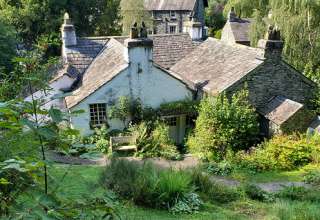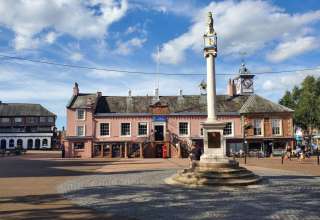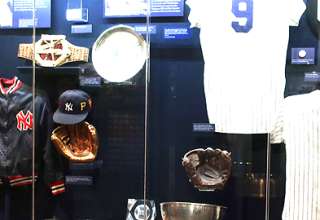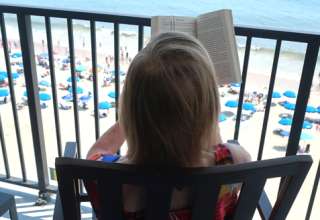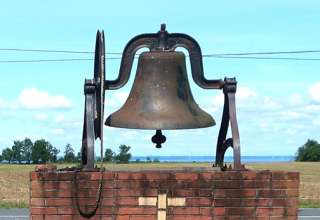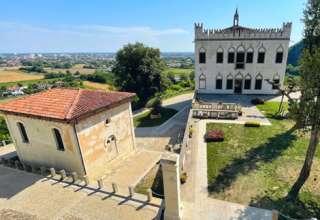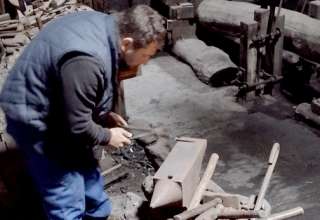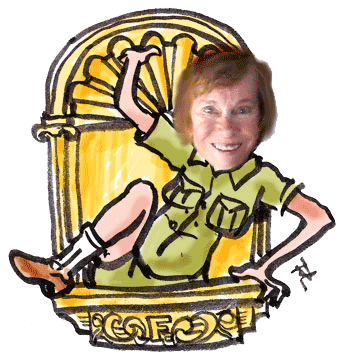What do William Wordsworth, William Yeats and Jemima Puddle-Duck have in common? Well, they all lived in and around the fairy-tale villages of England’s Lake District, but only one of them actually is a fairy tale. And possibly the most famous of the three — at least among the under-10 set. Ms. Puddle-Duck, along with her good friends and neighbors, Peter Rabbit, Samuel Whiskers and Pickles among many others, were brought to life by Beatrix Potter, another famous resident of the Lake District — and the one most responsible for maintaining the environmental integrity of the area since her death in 1943 when she donated 14 properties to the National Trust thereby preserving much of the land that now comprises the Lake District National Park.
Okay, is there anyone who actually made it through childhood without at least a cursory introduction to Peter Rabbit, Flopsy and Mopsy and that mean old farmer McGregor? Well, this is where they lived until Beatrix caught them and immortalized them forever in little 5” by 4”-sized books.
Her books sold more than any other children’s stories ever although I suspect Pat the Bunny, Peter’s more tactile cousin, has since given him a run for his money…
So first, something about that Lake District which Beatrix Potter so loved. The countryside is so tantalizingly green the color needs a new more enchanting name.
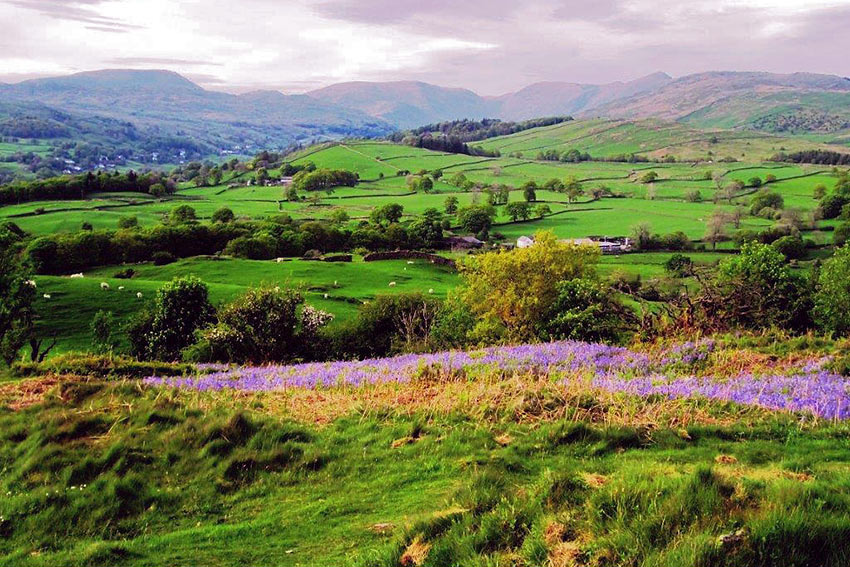

Quintessentially English replete with requisite sheep, rolling hedgerows, low slung stone walls criss-crossing the landscape into checkerboard squares, slate-roofed stone houses, and hot pink, orange-gold and deep purple explosions of color so vibrant as to rival the most brightly lit of neon Nikes so popular today. And by contrast, in the middle of the district, craggy mountainous regions lend an even more dramatic flair. And, oh yes, then there are the lakes — 16 of them; ergo, the District’s name.
A world so clichely picturesque, with OMG moments at every turn, which serves to explain the many artists who flocked here to replicate its beauty on canvas. An entire expanse of visual wonderment extending for miles in every direction that makes scenic overlook signs ridiculously redundant. All of which is a walker’s wonderland with public footpaths as plentiful on every country road as Starbucks are on every street corner in the U.S. No wonder Beatrix Potter fell in love.
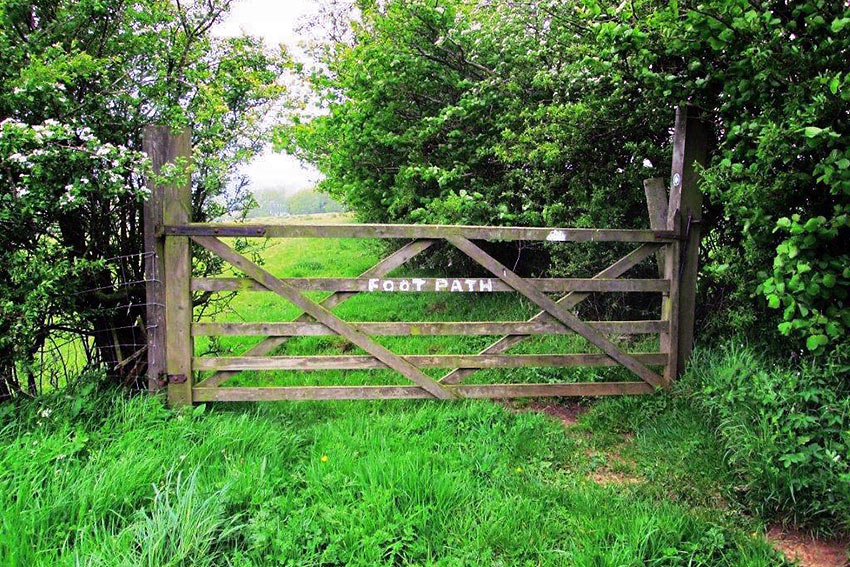
I saw so many rabbits scampering about as we hiked the countryside, I felt this was an open invitation — as it must have been for Beatrix — to follow them further into their world, even if that turned out to be a very commercial but wonderfully inventive, creative, interactive enterprise appropriately nicknamed The World of Peter Rabbit. But more on that later.
And splattered throughout the countryside are hilly historic towns with cobblestone streets and hidden alleyways that now sport shops, pubs and curbside cafes, with such lyrical names as Branthwaite Brow, All Hollows and Beast Bank Lane. And a lot more stone, this time on buildings, many from the 16th-18th centuries, evoking memories of Renaissance–era maidens and merchants plying their trade, oblivious to the KFC establishment right across the street.
But there is nothing modern about a visit to Hill Top, Beatrix Potter’s home for 38 years and the site of many of her creations’ adventures. Many homes reflect the personalities of their owners — and sometimes even their pets. But rarely is a home so filled with the immediacy of its owner’s creations as is Hill Top, first purchased in 1905, that they appear so alive as to permeate not only the house but the surrounding village and countryside, all of which became additional characters in what were soon to become a series of beloved children’s books. And once you enter the grounds and garden of Hill Top, with all its original furnishings, you are transported back to the world as it was until the day she died. Except for the occasional young visitor who has been known to ask the guides, “So is she Harry Potter’s granny?”
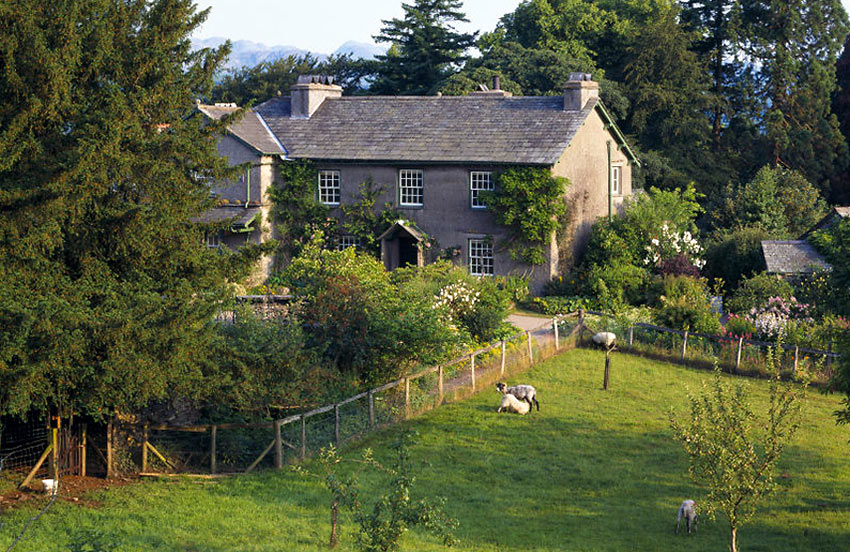
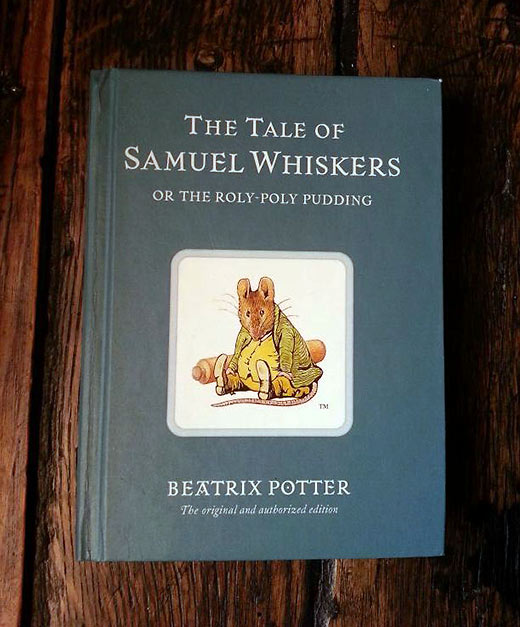
Pick up “A Tale of Samuel Whiskers” lying about as you walk in and follow the book’s tale as you see the holes where the mice lived that threatened Tom Kitten! You can accompany Pigland Bland as he wanders thru the village and seek to protect Jemima Puddle-Duck’s egg as it lays hidden in the rhubarb patch. You can almost hear the Two Bad Mice discussing the ham and cheese that don’t seem quite edible because they are, of course, from Beatrix’s doll house which is right in front of you in the parlor.
And not only her stories — but her life. Her desks contain letters she wrote, often illustrated with little cartoons and drawings; the first edition of Peter Rabbit, which started simply as a story written in letter form in September 1893 to cheer up a sick son of her former governess, is available for viewing.
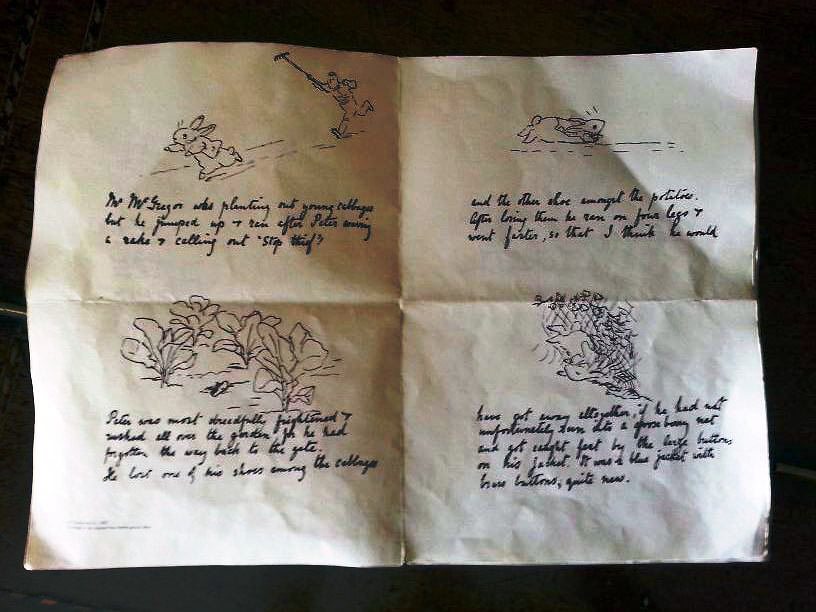
The whole house becomes alive through the illustrations in her stories — or is it that the illustrations become alive because they re-create the reality of her home? The parlor contains a table with some partially eaten biscuits and some correspondence Beatrix was evidently in the process of completing — clearly she is expected to return at any moment…
So much of the house, the grounds and the village reflected in the books remain unchanged, you can relive the delightful tales of your youth in a way no perfunctory read in your own living room can provide.

And indeed every area shop seemingly sells some version of Peter Rabbit memorabilia. Emblematic of how much he invades the neighborhood, when my husband and I stopped at a local pub for some requisite fish and chips, he asked about the soup of the day. When told by the bartender that it was carrot, he quipped: “How appropriate. No doubt Peter Rabbit’s favorite…”
And remember the rabbits cavorting in the countryside? Well, here’s where their namesake really comes alive. In the downtown section of Bowness-on-Windermere there stands a very different testimonial to the creations of Beatrix Potter. More commercial perhaps but no less intriguing. The World of Beatrix Potter Attractions, unconnected with the National Trust preservation of Hill Top, offers an animated version of all 23 of Potter’s tales brought to life in an indoor re-creation of the Lake District countryside she loved and her lovable characters inhabited complete with sights, sounds and smells.
I mean how thrilling is it to find that Jemima Puddle-Duck was a real duck that lived at Hill Top whose efforts to hatch her own eggs, thwarted by a conniving fox nearby, were protected by Kep the collie, Beatrix’s favorite sheepdog. You can’t get more real life than that — and we’re talking cartoon characters!
Throughout the attraction are life-size dioramas of scenes from her books, sometimes comprising an entire forest, that it’s hard to imagine that they were once only illustrations in a book the size of 4×5 inches??? The whole exhibit replicates a stroll through Beatrix Potter’s home and garden.
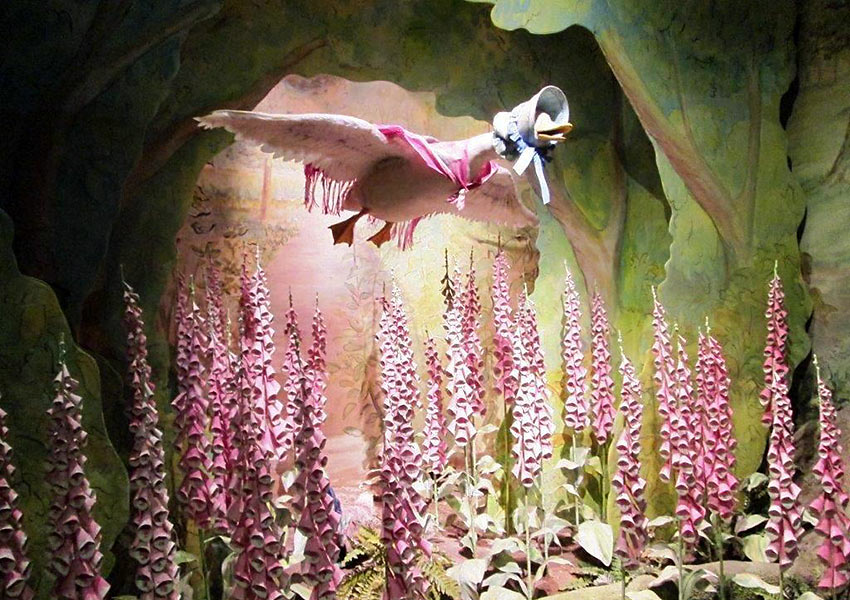
Each exhibit entreats the viewer to press a “Find out more” button which provides an explanation of what inspired Beatrix to write that particular story and how she developed those particular characters. Each larger-than-life display lifts the characters from the page to inhabit your consciousness in a way few fairy-tales — or for that matter, adult literary protagonists — ever will. There is so much background information about each character — and there are dozens — that it is almost impossible to absorb it all unless you are a very devoted Beatrix Potter aficionado. It’s a journey through a lifetime of literature.
Adele Wilson from Scotland, with nary a kid in tow was so obviously enthralled by the exhibits that I couldn’t resist asking why. “My granny used to read these books to me at night, and seeing these presentations brings it all back to life. I had forgotten how much I had loved all those stories.” She isn’t alone.
For more information, visit National Trust, The World of Beatrix Potter and Go Lakes.
